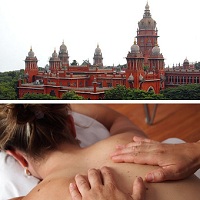The Madras High Court recently passed a judgment, saying that installing CCTV cameras in spas violates the right to ‘bodily’ privacy. The court’s Madurai bench heard a petition filed by a spa owner in the Tiruchirappalli district. In an earlier instance, one of the judges passed an order by which such cameras were installed to prevent illegal activities.
However, the judge presiding over the recent petition quashed it, saying that it goes against the Supreme Court’s decision on privacy as a constitutional right. ‘Prying Eyes’ In ‘Inviolable Places’ Justice GR Swaminathan heard the petition filed by a woman named Payel Biswas. She sought directions for a no-objection certificate (NOC) for her spa called ‘Queen Ayurvedic Cross Spa Centre.’ Justice SM Subramaniam passed the order mentioned above to control immoral activities in the spa.
Justice Swaminathan was quoted as saying, “A decision to install a CCTV camera, which has a bearing on a person’s privacy requires careful considerations. They determine what manner of regulations ought to be put in place for its proper use.” Furthermore, the judge upheld the ‘right to relax’ that could be exercised in various forms.
He adds, “The suspicion of immoral activities taking place in massage centres cannot be reason enough to intrude into an individual’s right to relax, for it intrinsically is part and parcel of his fundamental right to privacy.” In December 2021, the Madras High Court asked all spa and massage centres to install CCTV cameras. As reported by The Times of India, the court felt that installing the cameras would only help the authorities ensure the lawful business is being conducted within the premises.
“There are large-scale allegations in the public domain against ayurvedic spas and massage centres. Police are empowered to perform inspections, and if any doubt arises, they are bound to investigate to verify the business activities.








